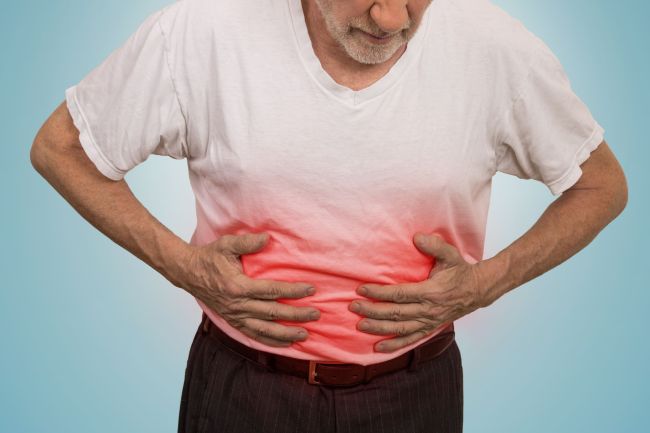About 65 percent of South Korean parents with children with Crohn’s disease are either unaware of or unfamiliar with the application process for the government’s nutritional support program for young patients with the condition, a study showed Sunday.
Crohn’s disease is a type of chronic inflammatory bowel disease that causes abdominal pain, poor appetite and diarrhea. It is often caused by an abnormal immune response in which the body attacks the cells in the digestive tract in addition to harmful, invasive bacteria or viruses.
Crohn’s disease is a type of chronic inflammatory bowel disease that causes abdominal pain, poor appetite and diarrhea. It is often caused by an abnormal immune response in which the body attacks the cells in the digestive tract in addition to harmful, invasive bacteria or viruses.

The Welfare Ministry currently supports about 50 percent of the cost needed for special formulas specifically produced for young Crohn’s disease patients aged 18 and under.
However, the study organized by local pharmaceutical company Handok showed that only about 20 percent of the 55 surveyed parents were benefitting from the service for their children. Among the participants, 34 percent were unaware of the existence of the program altogether and 30 percent said they did not know how to apply for the program, although they knew such services existed.
Those who wish to apply for the nutrition subsidy, according to the ministry, are required to submit a set of documents including a medical certificate to the nearby public health center, according to ministry officials.
Without any government support, it costs up to 1 million won ($850) a year for a 22-month-old child to acquire needed protein solely by drinking special formula. In order to apply, one needs to visit the nearest state-run health centers with a medical referral from a doctor.
According to the Health Insurance Review and Assessment Service, a total of 17,651 Koreans sought medical help for Crohn’s disease last year. The number of patients increased by 33 percent from 2010-2015, while patients aged 19 and under also rose by 25 percent. Poor lifestyle choices and stress are known to aggravate Crohn’s disease.
Young children with the disease often suffer undernourishment due to poor absorption of nutrients by the damaged intestines as well as poor appetite and avoidance of eating because of pain.
By Claire Lee (dyc@heraldcorp.com)
However, the study organized by local pharmaceutical company Handok showed that only about 20 percent of the 55 surveyed parents were benefitting from the service for their children. Among the participants, 34 percent were unaware of the existence of the program altogether and 30 percent said they did not know how to apply for the program, although they knew such services existed.
Those who wish to apply for the nutrition subsidy, according to the ministry, are required to submit a set of documents including a medical certificate to the nearby public health center, according to ministry officials.
Without any government support, it costs up to 1 million won ($850) a year for a 22-month-old child to acquire needed protein solely by drinking special formula. In order to apply, one needs to visit the nearest state-run health centers with a medical referral from a doctor.
According to the Health Insurance Review and Assessment Service, a total of 17,651 Koreans sought medical help for Crohn’s disease last year. The number of patients increased by 33 percent from 2010-2015, while patients aged 19 and under also rose by 25 percent. Poor lifestyle choices and stress are known to aggravate Crohn’s disease.
Young children with the disease often suffer undernourishment due to poor absorption of nutrients by the damaged intestines as well as poor appetite and avoidance of eating because of pain.
By Claire Lee (dyc@heraldcorp.com)



![[Herald Interview] 'Amid aging population, Korea to invite more young professionals from overseas'](http://res.heraldm.com/phpwas/restmb_idxmake.php?idx=644&simg=/content/image/2024/04/24/20240424050844_0.jpg&u=20240424200058)












![[KH Explains] Korean shipbuilding stocks rally: Real growth or bubble?](http://res.heraldm.com/phpwas/restmb_idxmake.php?idx=652&simg=/content/image/2024/04/25/20240425050656_0.jpg&u=)

